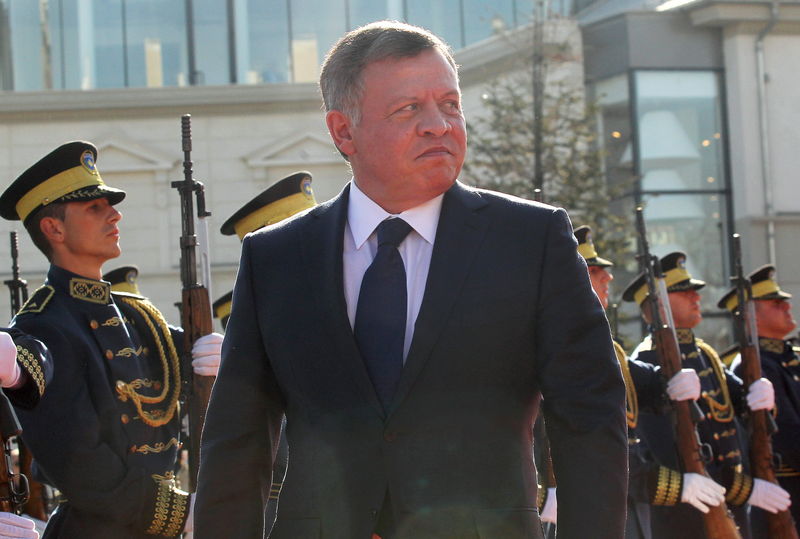By Suleiman Al-Khalidi
AMMAN (Reuters) - Jordan's King Abdullah, a U.S. ally, will hold talks in Moscow on Tuesday with Russian President Vladimir Putin on how to tackle "terror groups" led by Islamic State in Syria, an official source said.
Jordan reached an agreement with Moscow last month to ensure Russian bombing of targets in southern Syria, which borders the country, does not target Western backed rebels known as the Southern Front - a grouping it supports as a buffer against the spread of hardline Islamist groups.
The king is expected to raise concerns that any stepped-up Russian raids in southern Syria along Jordan's northern border could trigger a big wave of refugees into the already over-stretched kingdom which hosts over a million refugees fleeing the conflict, one official told Reuters on condition of anonymity.
Diplomats say the Russian air force has stepped up bombing in recent days of mainly civilian targets in rebel-controlled towns in southern Syria, including parts of rebel-held Deraa city that are run by moderate rebel groups backed by Jordan.
Jordan has not publicly commented but the monarch, who has close personal ties with Putin, recently publicly expressed enthusiasm about the intensive Russian military campaign in Syria, saying it offered a window of opportunity and that Moscow had a key role in defeating the ultra-hardline militants.
Diplomats says Moscow's expanding bombing raids in the south this week, however, showed the limitations of Jordan's leverage over the Russians who launched their air campaign on Sept. 30 with the stated aim of hitting Islamic State but mostly bombing other rebel groups in the west of the country.
They said there was also some disquiet in Washington about any closer security and military cooperation with Moscow.
Diplomats say Jordan's overt backing of Moscow's military campaign also risks putting it at odds with Saudi Arabia and Turkey that are very critical of Russia's campaign.
Jordan is Sunni-dominated and closely aligned with Washington, so Moscow's deal with Jordan could mark a shift in the alliances engaged in the Syria conflict.

Putin has already forged close cooperation with the governments of Iraq, Syria and Iran, which are all part of a loose Shi'ite alliance pursuing different aims from those of the United States and its allies.